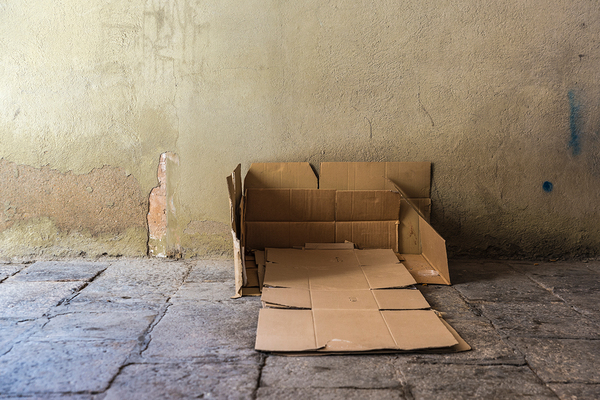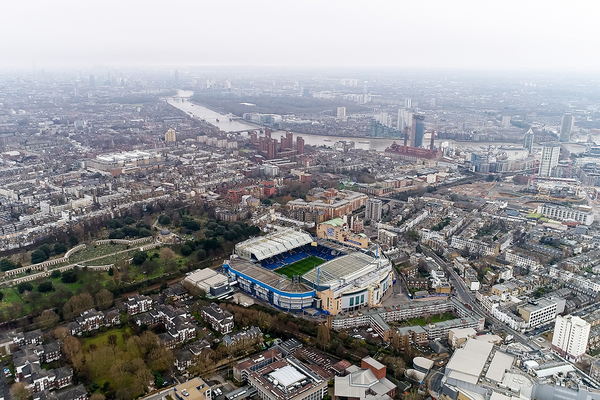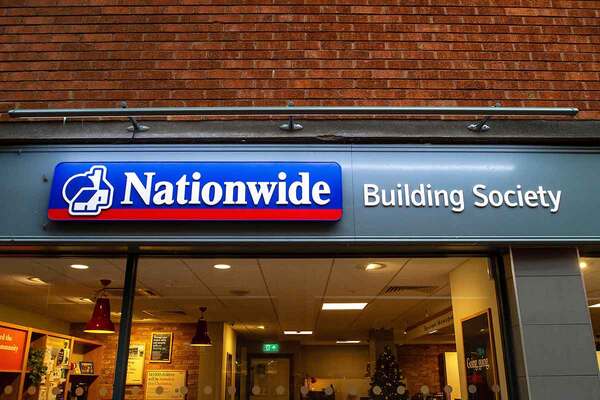You are viewing 1 of your 1 free articles

Housing associations can help put an end to the scandal of veteran homelessness
Too many veterans are struggling with housing issues and make up 3% of the street homeless population. The housing sector can act to change this, writes Ed Tytherleigh
We’ve got a way to go, but housing associations can play a vital role in helping end veterans’ homelessness.
As we pass Remembrance Day again this year, the country will once again come together to remember the service and sacrifice of the men and women of Britain, the Commonwealth and allied nations who fought during World War I.
This occasion gives us the opportunity to pause and reflect on the sacrifice of those in the armed forces and the debt we owe them.
Life after the military is not easy for many who serve, however most veterans do make a smooth transition to civilian life. It is still far too common, though, for ex-service personnel, especially younger veterans, to end up homeless, sofa-surfing or on the streets.
Our analysis of government data shows that homeless veterans are being missed and are losing out on the enhanced support and housing available to them. Veterans make up to 3% of the street homeless population and up to 3,500 veterans are falling through the net and not getting the support they are entitled to.
To address this issue and bring that number as close to zero as possible, we have launched the No Homeless Veterans campaign. It calls on local authorities, homelessness charities and advice agencies to ‘think veteran’ in order to identify former servicemen and women and signpost them to the best possible support.
As part of this campaign, the Veterans’ Nomination Scheme, operated by housing charity Stoll and delivered in partnership with the Royal British Legion, will continue to play an important role in tackling veterans’ homelessness.
The scheme helps veterans who are assessed as being ‘tenancy ready’ to find stable and affordable accommodation by working with more than 90 housing associations and social landlords across the country.
“Veterans make up to 3% of the street homeless population and up to 3,500 veterans are falling through the net and not getting the support they are entitled to”
It is tailored for the needs of mainly single veterans and couples without children who would not normally be eligible for social housing. This then makes the transition from military to civilian life far easier and allows them to go on to live independently. Since it was founded, the scheme has set up more than 560 tenancies for homeless veterans. Please get in touch if you think you can help offer homes to homeless veterans.
The No Homeless Veterans campaign is currently touring the country, working with local authorities, housing associations and those on the frontline of dealing with homelessness, to ensure ex-service personnel are signposted to the best support possible.
This includes routinely asking everyone who applies for housing whether they have served in the military; recording whether someone being supported is a veteran; and giving frontline staff the knowledge of where veterans can get support locally and ensuring they are up to date with the guidance and legislation relating to veterans.
To help with this we have launched a new toolkit, developed in partnership with the Royal British Legion, which is available to download for free from the No Homeless Veterans website.
“It is unacceptable that – despite promises made in the Armed Forces Covenant – there are still homeless veterans in housing need who are not receiving the right help”
Our aim is that every single veteran who presents themselves in housing need is signposted to appropriate services so they can find somewhere to live as soon as possible.
It is unacceptable that – despite promises made in the Armed Forces Covenant – there are still homeless veterans in housing need who are not receiving the right help.
Remembrance is a stark reminder of the risks military personnel take when they serve in the armed forces. The fact that despite the sacrifices they have made, veterans are returning to civilian life without a home is shameful and avoidable.
With the help of housing associations, the No Homeless Veterans campaign will help put an end to this and reduce homelessness as close to zero as possible.
Ed Tytherleigh, co-chair, Confederation of Service Charities Housing Cluster, and chief executive, Stoll













